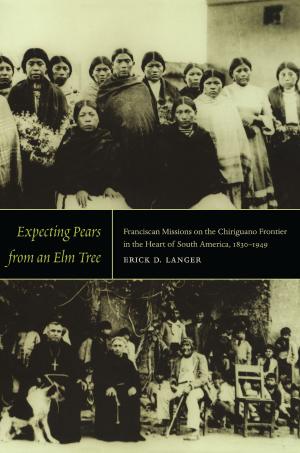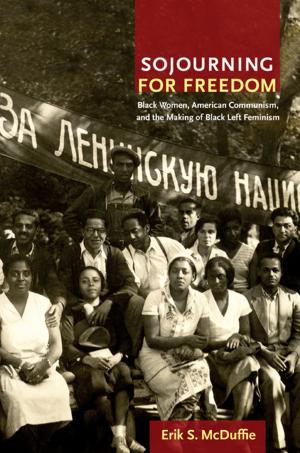Cortijo's Wake / El entierro de Cortijo
Nonfiction, Entertainment, Music, Music Styles, Latin, Biography & Memoir, Composers & Musicians| Author: | Edgardo Rodríguez Juliá | ISBN: | 9780822385738 |
| Publisher: | Duke University Press | Publication: | December 30, 2003 |
| Imprint: | Duke University Press Books | Language: | English |
| Author: | Edgardo Rodríguez Juliá |
| ISBN: | 9780822385738 |
| Publisher: | Duke University Press |
| Publication: | December 30, 2003 |
| Imprint: | Duke University Press Books |
| Language: | English |
A bilingual edition of a renowned work of Puerto Rican literature, Cortijo’s Wake/El entierro de Cortijo is novelist Edgardo Rodríguez Juliá’s vivid description of the funeral of legendary Puerto Rican musician Rafael Cortijo. El entierro de Cortijo became an immediate bestseller following its original publication in Puerto Rico in 1983. An unparalleled Afro-Puerto Rican percussionist and bandleader, Cortijo (1928–1982) revolutionized the country’s musical culture. His band, Cortijo y Su Combo, captivated Caribbean and Latin American audiences as it emerged in the mid-1950s. Immensely popular across Puerto Rican social classes, the band both “modernized” the traditional vernacular forms of bomba and plena and forcefully reestablished their African and working-class roots. The group’s innovations have been integral to salsa since the 1960s.
Winding through the streets of working-class San Juan with Cortijo’s funeral procession, Rodríguez Juliá’s autobiographical chronicle provides a rare portrait of the impoverished society from which Cortijo’s music emerged. Along with detailed renderings of grief-stricken mourners—including Cortijo’s childhood friend and fellow musician, the celebrated singer Ismael ("Maelo") Rivera—Rodríguez Juliá records his feelings as he, a light-skinned, middle-class writer, confronts the world of poor black Puerto Ricans. The author’s masterful shifting of linguistic registers, his acute sensitivity to Puerto Rican social codes, his broad knowledge of popular music, and his sardonic ruminations on death and immortality make this one of the most widely read books of modern Puerto Rican literature. Well-known critic and cultural historian Juan Flores has provided a scrupulous translation of Rodríguez Juliá’s text and an introduction situating the book in relation to Puerto Rican music and culture and the careers of Cortijo and Rodríguez Juliá.
A bilingual edition of a renowned work of Puerto Rican literature, Cortijo’s Wake/El entierro de Cortijo is novelist Edgardo Rodríguez Juliá’s vivid description of the funeral of legendary Puerto Rican musician Rafael Cortijo. El entierro de Cortijo became an immediate bestseller following its original publication in Puerto Rico in 1983. An unparalleled Afro-Puerto Rican percussionist and bandleader, Cortijo (1928–1982) revolutionized the country’s musical culture. His band, Cortijo y Su Combo, captivated Caribbean and Latin American audiences as it emerged in the mid-1950s. Immensely popular across Puerto Rican social classes, the band both “modernized” the traditional vernacular forms of bomba and plena and forcefully reestablished their African and working-class roots. The group’s innovations have been integral to salsa since the 1960s.
Winding through the streets of working-class San Juan with Cortijo’s funeral procession, Rodríguez Juliá’s autobiographical chronicle provides a rare portrait of the impoverished society from which Cortijo’s music emerged. Along with detailed renderings of grief-stricken mourners—including Cortijo’s childhood friend and fellow musician, the celebrated singer Ismael ("Maelo") Rivera—Rodríguez Juliá records his feelings as he, a light-skinned, middle-class writer, confronts the world of poor black Puerto Ricans. The author’s masterful shifting of linguistic registers, his acute sensitivity to Puerto Rican social codes, his broad knowledge of popular music, and his sardonic ruminations on death and immortality make this one of the most widely read books of modern Puerto Rican literature. Well-known critic and cultural historian Juan Flores has provided a scrupulous translation of Rodríguez Juliá’s text and an introduction situating the book in relation to Puerto Rican music and culture and the careers of Cortijo and Rodríguez Juliá.















